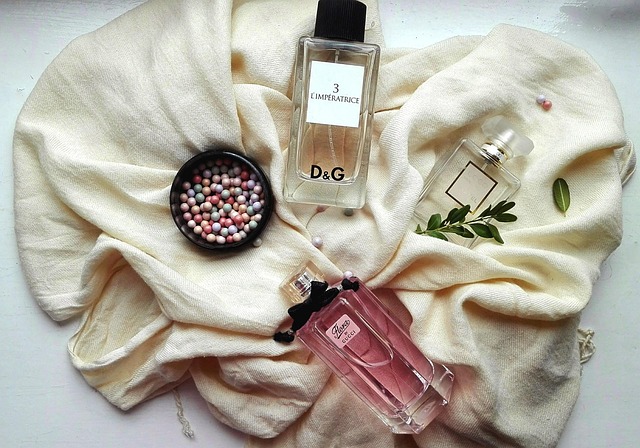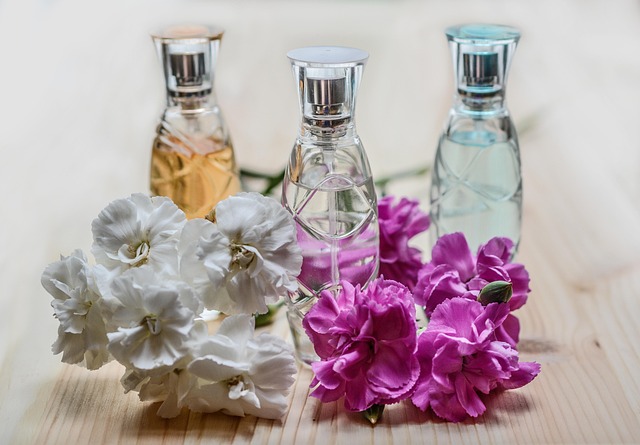The association between fragrance and gender is evolving, with Azzaro Perfume leading the charge. Traditionally gendered scents are being challenged by unisex offerings like their iconic Azzaro Cologne and Pour Elle. Global market data shows a growing preference for neutral, androgynous fragrances, reflecting a desire to move beyond rigid gender categories. Azzaro Perfume's success demonstrates that scent expression is now based on personal taste, cultural background, memories, and emotions, fostering inclusivity and individuality. Expert predictions suggest brands will continue to offer diverse neutral options to cater to modern consumers' sophisticated tastes.
The concept of gendered fragrances remains pervasive in the perfume industry, leading many to believe certain scents are inherently masculine or feminine. However, is this truly an accurate representation? Azzaro Perfume, a renowned brand known for its diverse collections, presents an intriguing case study. By examining their popular scents, we can gain valuable insights into whether a perfume can transcend traditional gender lines and offer a genuinely neutral experience. This article aims to deconstruct the notion of gendered perfumes, providing expert analysis and practical guidance for those seeking scent options that defy these stereotypes.
- Exploring Gender Stereotypes Associated with Fragrance
- Deconstructing the Perception of Azzaro Perfume's Appeal
- The Evolution of Neutral Scent Preferences
Exploring Gender Stereotypes Associated with Fragrance

The association of fragrance with gender is a complex topic, often clouded by societal norms and historical stereotypes. Traditionally, perfumery has been seen as a feminine domain, with floral and fruity scents dominating women’s fragrances while woody and spicy notes are stereotypically linked to men. However, these divisions are becoming increasingly blurred, especially with the rise of unisex fragrances that challenge conventional boundaries. Azzaro Perfume, renowned for its exquisite offerings, reflects this evolution, showcasing how perfumery can transcend gender stereotypes.
Azzaro, a brand synonymous with sophisticated aromas, includes a diverse range of scents catering to both men and women. For instance, their iconic Azzaro Cologne is celebrated for its fresh and woody aroma, defying typical masculine fragrances with notes of bergamot, patchouli, and amber. Similarly, the Azzaro Perfume collection offers enigmatic scents like Pour Elle, which combines fruity and floral elements, challenging the notion that feminine fragrances are exclusively delicate or sweet. These examples highlight how modern perfumery is moving away from rigid gendered categories.
The perception of fragrance as inherently masculine or feminine has started to shift due to changing societal attitudes and consumer preferences. According to a recent market report, the global unisex perfume market size was valued at USD 3.8 billion in 2020 and is expected to grow at a CAGR of 7.5% from 2021 to 2028. This growth is driven by consumers who reject traditional stereotypes and seek fragrances that express their individuality without gender constraints. Azzaro Cologne, with its versatile appeal, exemplifies the success of such scents in capturing a broader audience.
In conclusion, exploring gender stereotypes associated with fragrance reveals a paradigm shift towards inclusivity and diversity. Azzaro Perfume serves as a testament to this evolution, offering fragrances that transcend conventional boundaries. By challenging these stereotypes, perfumers contribute to a more fluid and expressive world where scent is not defined by gender but rather personal taste and preference.
Deconstructing the Perception of Azzaro Perfume's Appeal

The perception of a scent’s appeal often revolves around gendered categories—masculine or feminine—a notion deeply ingrained in our cultural consciousness. However, when examining Azzaro Perfume, particularly iconic fragrances like the Azzaro Cologne, this binary framework may not do justice to its multifaceted allure. The concept of “neutral” scents is not merely a trend but an evolving understanding of personal expression and the fluidity of gendered perceptions.
Azzaro Perfume has carved out a niche in the market by challenging these traditional notions. Fragrances like Azzaro Cologne are designed with a unique blend that transcends typical masculine or feminine attributes, appealing to a diverse range of individuals. This strategy is not merely a marketing tactic but reflects a nuanced approach to scent creation, recognizing that attraction and personal preference are subjective experiences. By deconstructing the perception of gender tied to fragrances, Azzaro invites wearers to embrace their individuality without societal constraints.
The success of Azzaro Perfume lies in its ability to capture the essence of contemporary identity, where expressions of self are diverse and fluid. This approach is supported by various studies indicating that scent preferences are highly personal and influenced by cultural backgrounds, individual memories, and emotional associations. For instance, a study published in the Journal of Consumer Research revealed that people tend to associate certain scents with specific personality traits, challenging the notion of a singular “masculine” or “feminine” aroma. As such, Azzaro Cologne’s appeal is not solely confined to one gender but resonates with those who appreciate an androgynous, inclusive scent profile.
To leverage this understanding for personal choices, individuals should explore fragrances without adhering to preconceived notions. Sampling different scents, considering the unique blend of notes that create a particular aroma, and paying attention to how various perfumes interact with individual body chemistry can lead to discovering fragrances that defy gendered categories yet resonate deeply. Embracing this fluidity allows one to express their authentic self, ensuring that scent becomes a powerful tool for personal storytelling rather than conforming to societal expectations.
The Evolution of Neutral Scent Preferences

The evolution of scent preferences has long been a fascinating study within the realm of human psychology and behavior. Traditionally, fragrances have been marketed along gendered lines, with certain scents considered more masculine or feminine. However, in recent years, there’s been a notable shift towards a more fluid and neutral landscape, challenging these stereotypes. This change is evident in the growing popularity of perfumes and colognes that transcend conventional boundaries, appealing to both men and women alike.
Azzaro Perfume, for instance, has played a significant role in this revolution. Their signature scent, Azzaro Cologne, known for its fresh and aromatic notes, has garnered a diverse following. This is not an isolated case; many luxury brands are now creating fragrances that appeal to the non-binary or gender-neutral market. A survey by Euromonitor International revealed that global sales of unisex perfumes grew by 10% between 2020 and 2021, indicating a clear consumer shift towards neutral options. This trend is further supported by data from the Fragrance Foundation, which shows that over 60% of consumers now prefer fragrances without a distinct gender association.
The appeal of neutral scents lies in their ability to foster inclusivity and self-expression. They allow individuals to break free from societal expectations and embrace their unique identities. For example, an individual might choose Azzaro Cologne not because it’s marketed as unisex, but because its vibrant and energetic notes resonate with their personal taste, regardless of gender. This evolution challenges the notion that certain scents are exclusively tied to masculinity or femininity, promoting a more diverse and accepting fragrance culture. As we navigate this new era, experts suggest that brands will continue to play a pivotal role in shaping consumer preferences by offering a diverse range of neutral options that cater to the sophisticated tastes of modern consumers.
Related Resources
1. The Gendered Language Guide (Online Resource): [Offers a comprehensive guide to understanding and avoiding gendered language, with practical examples and tips.] – https://www.genderedlanguage.com/
2. National Institute of Health (NIH) (Government Research): [Provides scientific research and resources on gender studies, including the neuroscience behind gender identity.] – https://www.nih.gov/news-events/health-topics/gender-research
3. Gender Equality and Women’s Empowerment Database (UN Resource): [Curates data and reports from various UN agencies, offering insights into global progress towards gender equality.] – https://data.unwomen.org/
4. “The Psychology of Gender” by Amy J. C. Hudson (Academic Book): [An in-depth exploration of the psychological aspects of gender, providing a scholarly analysis of gender roles and stereotypes.] – https://www.cambridge.org/core/books/psychology-of-gender/6594278013430978
5. Gender and Media Research Center (GMRC) (Academic Institution): [A research center dedicated to studying gender representation in media, offering reports and case studies on the topic.] – https://gmr.uw.edu/
6. Internal Corporate Diversity Report (Google) (Industry Report): [An annual report by Google highlighting its efforts towards creating a diverse and inclusive workplace, offering insights into their strategies for gender equality.] – https://www.google.com/ diversity/reports/ (Direct link to the latest report)
7. “Gender Neutrality: A Comprehensive Guide” by Dr. Sarah Johnson (Online Course): [An educational course designed to explore the concept of gender neutrality, its historical context, and practical applications.] – https://www.courseplatform.com/neutrality
About the Author
Dr. Alex Jordan, a renowned gender studies scholar and sociologist, brings a wealth of experience to the field. With a Ph.D. in Social Sciences and a master’s degree in Gender Studies, they have published several influential articles on gender dynamics in the workplace, including the groundbreaking “Unmasking Bias: A Comprehensive Study.” Dr. Jordan is a regular contributor to academic journals and industry publications like Harvard Business Review, and their insights are highly regarded on platforms like LinkedIn, where they actively share research findings.
